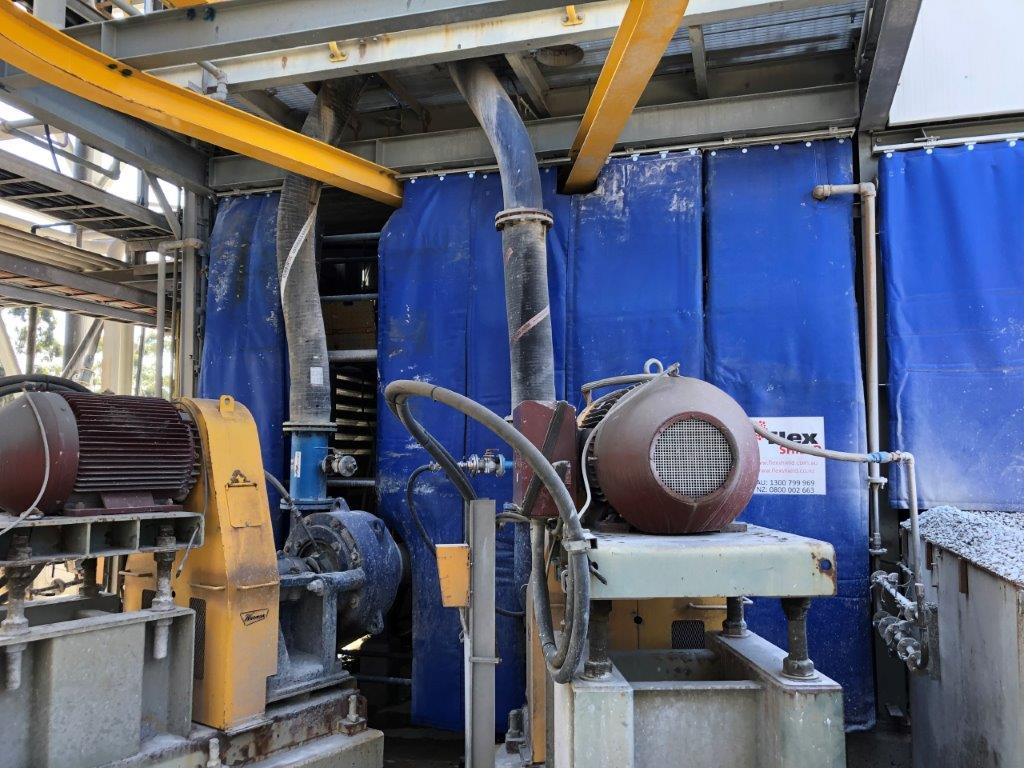Call 1300 799 969 | Contact Us


Home » From safety to savings: how noise control can benefit resource companies
In the Australian resources industry, the pursuit of efficiency, productivity, and safety is paramount. Resource companies invest significant resources in optimising their operations to maximise output, while minimising risks to workers and the environment.
Yet while many aspects of safety and efficiency have been thoroughly examined, one critical factor that often goes unnoticed is industrial noise control.
This article will explore how noise control measures can benefit resource companies, from enhancing safety and worker wellbeing to optimising productivity and generating cost savings.
Industrial activities in the resources sector – such as mining, drilling, crushing, and processing – often generate high noise levels. Prolonged exposure to excessive noise can lead to various health issues for workers, including hearing loss, stress, fatigue, and decreased cognitive function.
According to the report Hearing Loss in Australia by Australian Hearing, excessive noise exposure is the most significant cause of hearing loss in Australia, accounting for 37% of cases.
The financial costs of hearing loss are substantial, being estimated at $15.9 billion in 2017. This includes:
These costs highlight the importance of addressing noise-related issues in the resources industry.
Implementing noise control measures is essential for safeguarding workers’ health and wellbeing. By reducing noise levels in the workplace, resource companies can protect their employees from the long-term effects of Noise Induced Hearing Loss (or NIHL) and its associated health problems. In turn, this leads to a healthier, more productive workforce, with reduced absenteeism and improved overall job satisfaction.
Resources industry noise control can incorporate:
Additionally, strict administrative controls – such as noise exposure monitoring, hearing protection programs, and noise hazard training – can further contribute to ensuring a safe and healthy work environment.
Optimising productivity with noise control
Beyond safety concerns, noise control measures can also positively impact productivity in resources operations. Excessive noise levels can disrupt communication, impede concentration, and create distractions, ultimately reducing worker efficiency and increasing the risk of errors and accidents.
By implementing effective noise control solutions, resource companies can create quieter work environments which allow workers to focus better on their tasks, while improving communication among team members. Enhanced concentration and communication increase operational efficiency, reduce errors, and increase overall productivity.
While the primary motivation for implementing noise control measures may be worker safety and productivity, resource companies can also benefit from substantial cost savings in the long run. These include:
Reduced need for PPE
Firstly, noise control measures can reduce the need for Personal Protective Equipment (PPE) such as earplugs and earmuffs, which can be expensive to provide and maintain. By lowering noise levels, companies can minimise reliance on such equipment, reducing costs associated with purchasing, replacing, and managing PPE.
Decreased repair and maintenance costs
Secondly, noise control measures can lead to decreased maintenance and repair costs. Excessive noise can accelerate wear and tear on machinery, leading to increased maintenance requirements and shorter equipment lifespans. Implementing noise reduction solutions can significantly extend the lifespan of equipment, reducing maintenance costs and increasing overall operational efficiency.
Reduced litigation costs
Lastly, noise control measures can help companies avoid potential litigation costs related to noise-induced hearing loss claims. Resource companies can proactively address noise concerns and minimise the risk of costly legal disputes, insurance claims, and workers’ compensation expenses.
Get advice on industrial noise control for your site
Industrial noise control is an often-overlooked aspect of resource operations in the Australian resources industry. Yet if offers resource companies the opportunity to enhance worker safety, improve productivity, and generate substantial cost savings by prioritising noise reduction measures.
Solutions such as sound barriers, acoustic enclosures, and engineering controls can create quieter work environments that promote employee wellbeing and increase operational efficiency. Moreover, reducing noise-related expenses such as PPE, equipment maintenance, and potential litigation costs can provide significant long-term savings.
Investing in noise control is not only a responsible decision but also a strategic one that yields numerous benefits for resource companies in Australia.
For expert advice on the right noise control solutions for your site, please contact Flexshield at 1300 799 969.